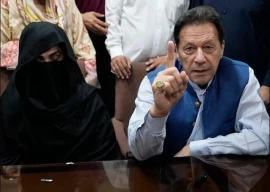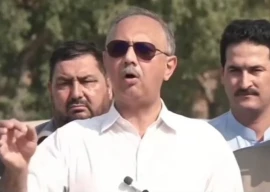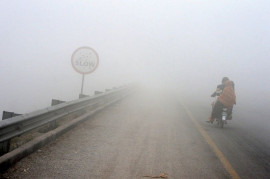
The decision was agreed upon during a meeting between Prime Minister Yousaf Raza Gilani and Pakistan Muslim League-Nawaz (PML-N) chief Nawaz Sharif here on Saturday.
Both leaders told the media at a joint news conference that the commission is being set up to ensure the money people of Pakistan and foreign governments contribute for the rehabilitation of flood victims is spent transparently.
The agreement — intended as an assurance to both the national and international donors — comes amid reports the world community is ‘reluctant’ to contribute to the government, because of Pakistan’s allegedly ‘tainted’ past of spending foreign aid for disaster-stricken people.
Also, local donors are shying away from the official agencies and instead opting to channel their funds through charities associated with religious groups such as Jamaat-e-Islami (JI) and Jamaat-ud-Dawa (JuD).
Gilani said that the still-to-be-formed body would not only supervise the rehabilitation efforts by the government but also help raise funds.
According to media reports, there haven’t been any significant deposits in funds that Gilani and other government functionaries such National Assembly Speaker Dr Fehmida Mirza had established for flood victims in a show of ‘mistrust’ between the people and the political leadership.
Gilani said that former Supreme Court judges Rana Bhagwandas, Fakhruddin G Ibrahim and Nasir Aslam Zahid were being considered for the National Relief Commission’s top post.
Top urologist and humanitarian worker Dr Adeeb Rizvi, prominent lawyer Ali Ahmed Kurd, Justice (retired) Taqi Usmani, Justice (retired) Shafi-ur-Rehman, ex-bureaucrat and ambassador Rustam Shah Mohmand and Pakhtun nationalist leader Mahmood Khan Achakzai are likely to be named commission members.
The two leaders expressed the resolve to work together for the rehabilitation of the flood-stricken people.
Gilani said he also telephoned Asfandyar Wali, the chief of Awami National Party (ANP) and would continue to contact other leaders to gain their support for a national cause.
Of late, there has been a lot of criticism in the news media, with television anchors blaming “laxity on the part of politicians” to reach hundreds of thousands of survivors.
The country’s military, on the other hand, has been at the forefront of relief efforts in what observers see as a cautious and calculated attempt to revive its image.
“The calamity demands that all political parties rise above their differences and jointly cope with the disaster,” Gilani said.
He said the government has decided to set up a body to transparently collect and disburse funds amongst the provinces judiciously as per the damage assessment.
Nawaz Sharif said he had witnessed the “unprecedented devastation” caused by the floods. There was a need to unite the nation without indulging in any point-scoring, he added.
Sharif announced that he and Gilani would tour the entire country to raise funds locally without inviting assistance from abroad. “We will not beg the world to help us. If any country wishes to extend help, it may do so, but we have the ability to handle the calamity on our own.”
Prime Minister Gilani said the federal and the provincial governments would have to drastically cut down their expenditures to raise funds.
Regarding operation of foreign agencies and military personnel in the affected areas, Gilani said these were working with the permission of the government in specific areas.
Published in The Express Tribune, August 15th, 2010.

1734939576-0/Untitled-(85)1734939576-0-165x106.webp)
1734937729-0/akbar-(1)1734937729-0-165x106.webp)
1728297472-0/Fousey-(1)1728297472-0-165x106.webp)
1734937562-0/Untitled-(84)1734937562-0-165x106.webp)





1732012115-0/Untitled-design-(14)1732012115-0-270x192.webp)





1734778885-0/Untitled-(10)1734778885-0-270x192.webp)






COMMENTS (5)
Comments are moderated and generally will be posted if they are on-topic and not abusive.
For more information, please see our Comments FAQ